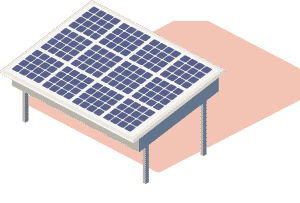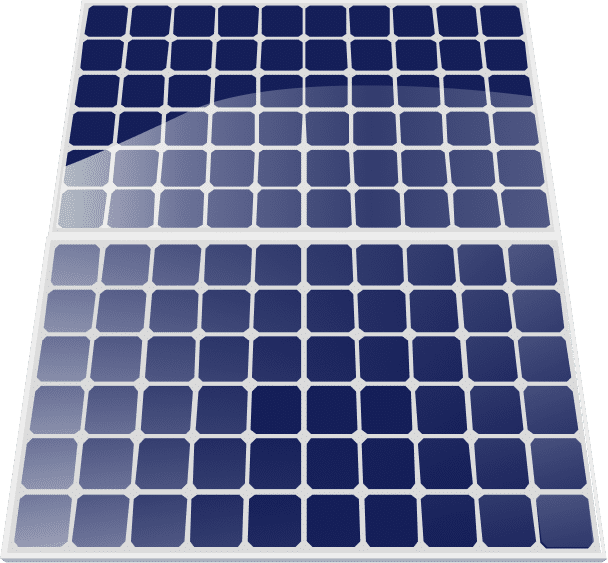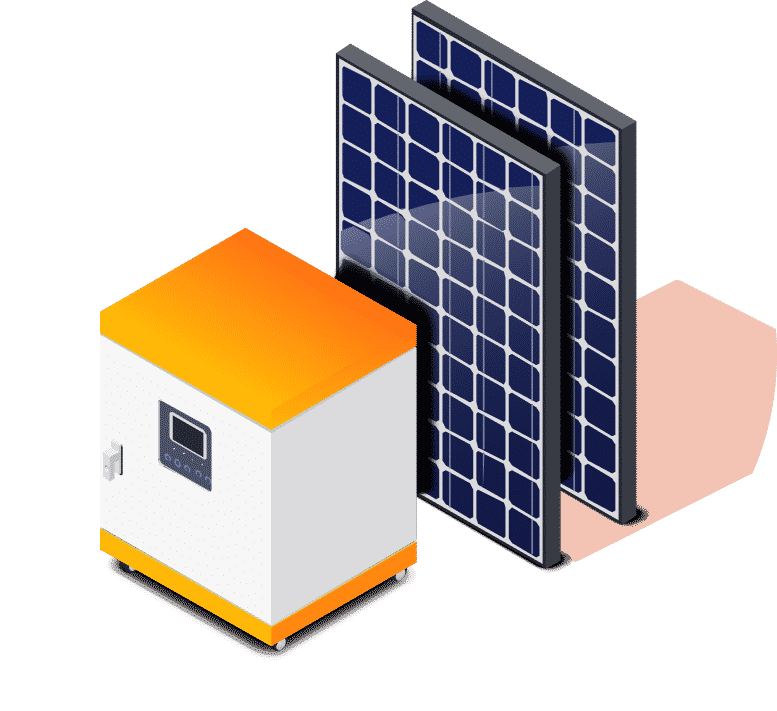What are the benefits to solar electricity?

What are the advantages from solar energy?
It’s hard to ignore the significance of solar energy. Going solar could bring significant returns for your money, not only for financial reasons but also to protect the environment and health of the public. As more people realize the numerous advantages of solar energy, and cost of installation drop, solar energy is becoming more sought-after by homeowners and business owners. There are many reasons why solar energy is an ideal option for those who are interested about the importance of it.
Its Evolution of Solar Energy
Over the past two decades, the usage of solar energy has increased gradually. More and more people are recognizing the enormous benefits of using solar panels. Demand for solar panel has grown between 0.34 gigawatts in 2008 to 97.2 by 2008; enough to provide electricity to 18 million homes. This increase in demand has contributed to lower costs. The cost of solar panels has dropped by 70% since 2014. As per the US Department of Energy, at the very least 7 percent of American homes will have rooftop solar PV systems by 2030.
What exactly is solar energy?
The sun’s light is what leads the solar power. The sun powers our planet. It supplies the energy needed to protect our environment and increase our population, no matter whether you are aware of it or not. The sun’s energy is enough to satisfy our every need. The US Department of Energy estimates that 173,000 terawatts of sun energy hit the earth every second, that’s more than 10,000 times more than the total global consumption of energy. The sun can be used to produce electricity that’s renewable, free and safe. Solar energy can be used to provide heat, light, and other electricity-dependent needs in homes and buildings.


Solar Panel System Benefits
Solar energy has many benefits. It can reduce your electric bill, improve your home’s value, decrease the carbon footprint of your home, fight rising electricity prices and even earn money back from your investments. However, solar energy does have some drawbacks. It’s not suitable for every roof , and it could cost a lot of money to install.
Installing a solar panel in your home or business can bring you many benefits. These are the most significant benefits of solar energy that you should keep in mind.
- Solar reduces/eliminates electric bills
- Solar panels can boost the value of your house
- Going solar lowers your carbon footprint
- Solar panels can help you cut down on the rapidly rising energy costs.
- Solar investment can yield you money.
- Solar energy can be used in a variety of ways
- You can also sell solar energy in return to grid
1. Solar energy can dramatically reduce or eliminate your electricity bill
The top benefit of solar panels is in the fact that they allow you to create your own electricity and become less dependent on electricity utility. This will help you cut down on your monthly electric bill. Solar panels can last of between 25 and 35 years. This means that you can cut down on your electric bills for years. The cost of solar panels has decreased by 70% over the past decade. However, the cost of electricity has been increasing by about five percent , and this pattern of rising electricity costs will likely to persist. Going solar can help limit the rise in costs. This calculator can provide you with an individualized estimate of your long-term savings on energy. You can also see the projected upfront costs and 20-year photovoltaic savings using custom projections.

2. Solar energy can increase the worth of your home
The majority of homeowners in area are looking into solar panels but don’t have the time or the knowledge required to set them up. Recent research has shown that solar panels could increase the value of your property. This is a fact that consumers can see. Another advantage of solar panels is that they can be used to balance out the disadvantages that we have mentioned previously. Even if you do not plan to move in the near future, your investment into solar panels could be repaid when you sell your house.
3. Solar helps reduce carbon emissions
It is a renewableand clean source of energy that could help reduce greenhouse gas emissions, such as carbon dioxide. It also aids in reducing the impact that we make on the natural world. Solar energy is not like other fossil fuels like coal and oil. It is not directly responsible for pollution (such like carbon dioxide) to be released into the atmosphere or the water supply. Solar is a better solution for the environment than nuclear energy.
5. Solar could earn you cash as you pay back your investment
Solar panels can generate bill savings and make a profit thanks to the many great solar incentives available in the [xfield_state-abbreviation]. Net metering, as well as solar renewable energy credits (SRECs) are among the main advantages of solar energy. These enable you to get bill credits , or even more cash as your solar panels generate electricity. In these instances, you are paid for the electricity produced by the solar panels. These incentives are available within certain state. You can anticipate both immediate and long-term gains from the solar investment.
6. The most versatile form of alternative energy is solar.
Solar energy can be used in nearly every environment, in contrast to other types of alternative energy such as wind energy that requires large open spaces and extreme wind changes. Solar energy can be a flexible alternative to renewable energy. Even though solar panels produce less power during cloudy days and in areas where there isn’t enough sunlight, they are still able to work. Solar power is a great investment, regardless of the location you reside in.
7. You can also sell solar energy back to grid
You could qualify for net billing , based on the area you reside in. Net Metering, an electric billing tool, is a way to store excess energy produced by solar panels. Net metering credits you with the energy your solar panels produce, however, you don’t actually use it. You could receive credit towards your bill for any energy you don’t utilize and, in effect, sell your solar power back into the grid that supplies electricity.
Who can benefit from solar energy?
Solar power systems get clean, pure power from the sun. They can also be erected at the home of your family to decrease greenhouse gas emissions. Traditional electricity is generated from fossil fuels, such as coal and natural gas. In order to produce electric power, fossil fuels release toxic gasses that are the major causes of global climate change in addition to air pollution. Fossil fuels are not only detrimental to the environment, but are also a finite resource. This is why the price fluctuates and can rise quickly.
Public health is also improved through renewable energy. The natural gas as well as coal power plants produce harmful air and water pollution. However the replacement of fossil fuels with renewable energy sources like solar power could reduce premature death and the overall cost of healthcare.
Although fossil fuels consume significant water resources, and could pollute water solar power requires less or none of water in order to function. Solar power doesn’t impact water resources , and it doesn’t strain the world’s water supply.
Even in extreme heat waves or droughts, solar power can still be utilized. Natural gas, coal and nuclear power all require large quantities of cooling water. Electricity generation is vulnerable to heat waves and severe droughts like we’ve experienced in recent years. Solar power systems don’t need water to generate electricity.
Solar power also creates jobs in clean energy. The [location] has been a leading player in the field of clean energy. Innovative and forward-thinking businesses will continue to take advantage of the changing environment of energy production and transition to renewable sources.
If you’re building your greenhouse, you might want to check out these LEED credits including sun orientation and passive solar{
How much will you save?
You can predict the amount of savings in energy per year by knowing in advance the price solar power plants will cost as well as the amount of energy it will produce.
This is a tricky calculation because it is based on the amount you are paying for electricity. Utilities charge homeowners a flat fee for electricity regardless of when they are used. Instead of compensating the high price of electricity produced at peak times for homeowners, solar power systems are used to reduce the price of electricity that they pay. This is closer to the cost in electricity manufacturing.
Many [xfield_state-abbreviation] utility companies have implemented pricing systems that allow homeowners to pay different rates throughout the day to reflect the cost of electricity production. This is the reason why there are higher rates in the afternoon, while there are lower rates for the night. A region with this kind of variable rate may find it beneficial to install a PV solar array. Solar power would offset the most expensive electric power.
It will be contingent on the amount of rate changes that occur under the plan and the timing of them. Similar pricing plans are utilized by utilities in specific regions. These rates can vary according to seasonal variations in demand. Solar energy is more expensive if it has higher summer rates.
These plans can be utilized by some utilities to adjust the marginal price of electricity as consumption increases. This strategy allows the benefits of a solar system to depend on how much electricity is used. In some areas, prices rise dramatically as consumers consume more. Large houses with high energy requirements may be most likely to require solar arrays that offset marginal costs of consumption.
It may be possible for some homeowners to sell solar power back into the grid to make profits. This is known as net meters in the area. Residential consumers use the power they get through the solar array to offset the power consumed elsewhere. The monthly electric bill is a measurement of the amount of energy consumed. There are different policies and regulations regarding net metering, which are applicable to each region. For more information homeowners are able to look up the database. It is also recommended to contact their local utilities.
What is the impact of solar energy on our society?
Community-based solar projects can also be beneficial to society, such as decreased heating bills for low income people, less dependence of public utilities and a healthier environment because of less pollution, and job creation.
